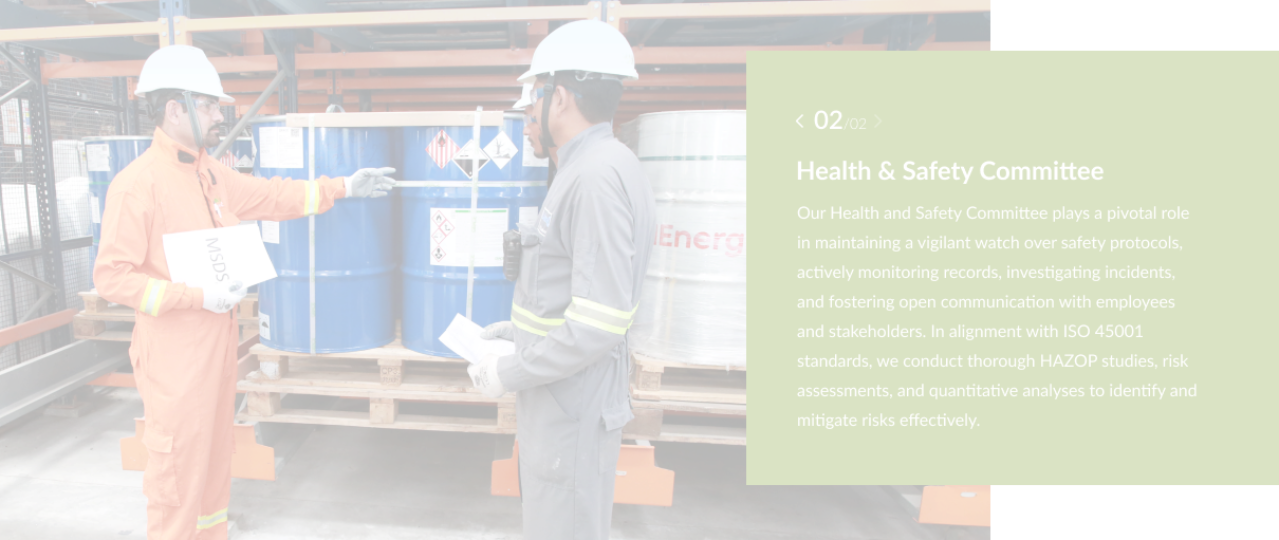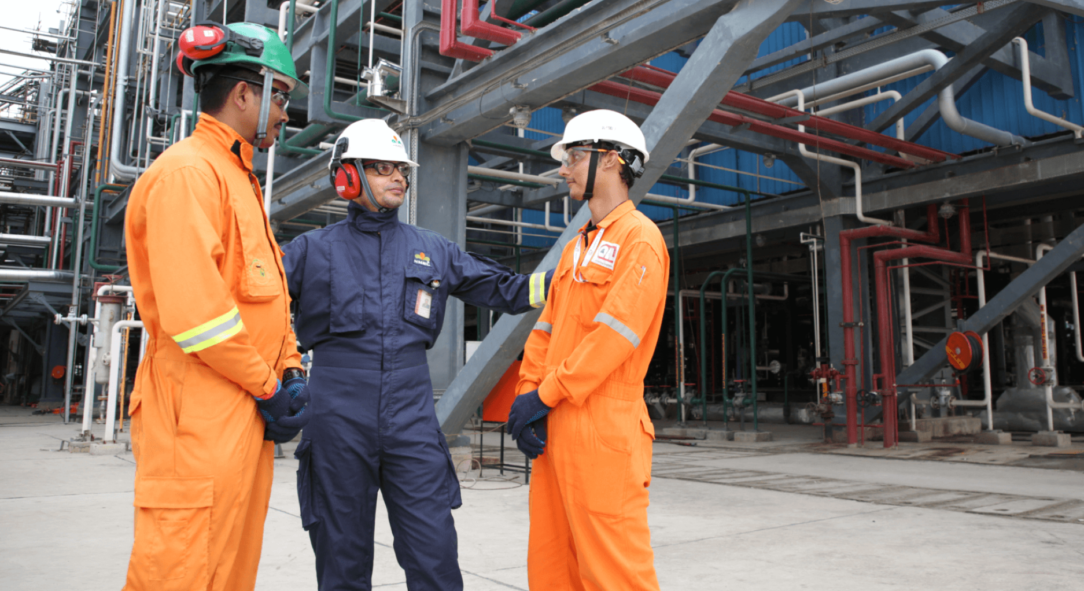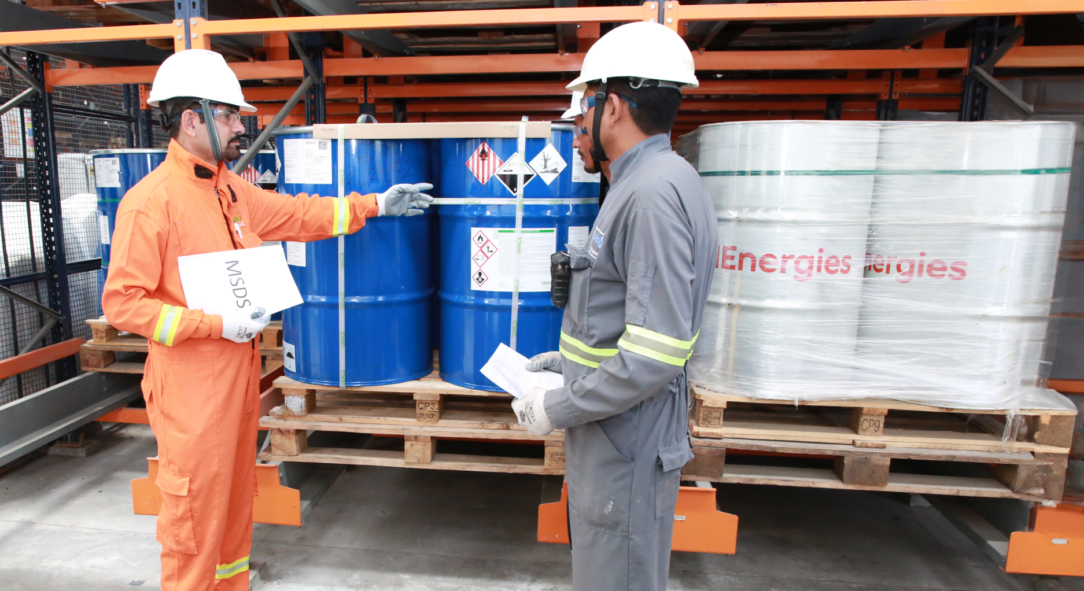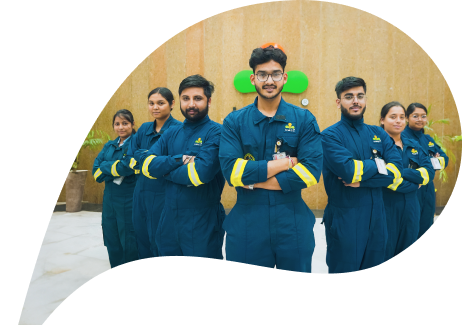A Continuous Quest for Safety Excellence
Building an incident and injury-free culture with the best global practices
Promising Safety for Our People and Planet
At HMEL, safety is not just a priority that may shift with circumstances; it’s a core value that remains unyielding and non-negotiable. In the hazardous oil and gas industry, every decision carries profound implications, with no margin for error. Even the slightest oversight can jeopardise lives, disrupt operations, and damage reputations. That’s why safety is embedded in every plan, action, and vision at HMEL, ensuring that everyone returns home safely to their families each and every day.

Safety as a
Core Value

Building a World-class
Safety Culture

Establishing a culture of
Care

Driving Safety with a
Trained workforce
Transforming safety into a way of life through an IIF approach
We are committed to the vision of an Injury and Incident-Free (IIF) workplace. It extends beyond mere compliance with safety protocols and fosters a deep sense of responsibility. We believe that when safety is ingrained as a personal value, it becomes second nature, guiding every action regardless of circumstances or external supervision. This IIF approach emphasises behaviour-based safety, nurturing a culture of relationships, accountability, and care. Our people act safely because it’s part of who they are, shaping everything they do.

Reach Out
Connect, appreciate, and build safety through relationships.

Raise Your Voice
Speak up for safety, share your experience.

Do it Right
Every task, every time, with safety in mind.

Recognize the Hazards
Identify risks, question assumptions, stay vigilant.




41.3 Million Accident-Free Manhours Achieved in February 2024
Sword of Honour Awarded by the British Safety Council
Five Star Rating by the British Safety Council for Process Safety Management
IIF Workplace™ Following Benchmarked Safety Practices

41.3 Million Accident-Free Manhours Achieved in February 2024
Sword of Honour Awarded by the British Safety Council
Five Star Rating by the British Safety Council for Process Safety Management
IIF Workplace™ Following Benchmarked Safety Practices
Robust Safety Measures: The 3P’s Model
HMEL upholds rigorous safety measures to create a work environment that prioritises the well-being of its personnel and the integrity of its operations. We emphasise a sustainable safety culture that aligns with the 3Ps model, encompassing:


Encouraging a Value-Based Culture
For us, safety begins with our people. Empowering every individual to make safety a personal responsibility is key to creating a resilient safety environment.
- Fostering Incident & Injury-Free Culture
Safety is not just about following rules; it is a mindset. Our IIF approach necessitates a safety-first attitude with a zero-tolerance policy to eliminate work-related incidents entirely.
- Extensive Training & Certification
Every employee undergoes comprehensive safety training, ensuring they are equipped to identify hazards, respond to emergencies, and follow safe practices.
- Safety Ownership for All
Safety is everyone’s responsibility. Through awareness campaigns, briefings, and recognition programmes, we foster a collective culture of safety.
- Top-Quality Safety Equipment
Our workforce is equipped with the highest-quality personal protective equipment (PPE) and receives thorough training on its proper usage, minimising workplace risks.


Safeguarding Operations with Precision
Our facilities are critical to our success and the safety of our people. We ensure our plants are protected with world-class standards and cutting-edge systems.
- Advanced Safety Management Systems
We adhere to global benchmarks like OHSAS 18001 and continuously refine our processes to mitigate risks and enhance safety.
- Strict Maintenance & Inspection Protocols
Regular inspections and rigorous maintenance schedules help us identify and address potential hazards before they pose any threat.
- Comprehensive Emergency Response
Our facilities are prepared for the unexpected. With extensive response plans and regular drills, we ensure our team is ready to act in any situation.
- Hazardous Material Management
We implement strict handling, storage, and disposal protocols for hazardous materials to prevent accidents and protect both our employees and the environment.


Maintaining Robust Protocols
In an oil and gas refinery, where multiple hazardous chemicals are handled daily, process safety is paramount for preventing catastrophic accidents. It involves the careful management of materials, equipment, and personnel, blending the OSHA and CCPS risk-based process safety principles.
- Proactive Risk Assessments
Continuous risk assessments allow us to identify potential safety hazards and implement measures to mitigate them across all processes.
- Clear Standard Operating Procedures (SOPs)
Our SOPs are designed with safety in mind, giving employees clear, actionable steps for performing their duties without risk.
- Continuous Improvement Initiatives
We constantly monitor our safety performance, seek feedback, and implement corrective actions to refine our systems and prevent future incidents.
Building Safety through Shared Responsibility
Safety is the result of shared values, attitudes, perceptions, competencies, and behaviours. Our health and safety management is rooted in mutual trust, a collective commitment to safety, and confidence in effective preventive measures.


Establishing a Strong Safety Culture
At HMEL, we firmly believe that safety culture is not built overnight; it is a continuous journey fueled by leadership commitment, employee engagement, ongoing learning, transparent communication, and recognition of safety achievements. We continually benchmark our Health, Safety, and Environment (HSE) practices against global leaders for the well-being of our workforce and community.

Continuous Learning for a Safer Workplace
Our safety approach is reinforced through tailored training, IIF leadership workshops, and drills at our dedicated training center. These programmes target specific roles and hazards, embedding safety in daily operations. We foster continuous learning from incidents, empowering employees to become proactive safety advocates. Virtual Reality (VR) simulations further enhance training by providing realistic scenarios for better engagement and preparedness.

Establishing a Strong Safety Culture
At HMEL, we firmly believe that safety culture is not built overnight; it is a continuous journey fueled by leadership commitment, employee engagement, ongoing learning, transparent communication, and recognition of safety achievements. We continually benchmark our Health, Safety, and Environment (HSE) practices against global leaders for the well-being of our workforce and community.

Continuous Learning for a Safer Workplace
Our safety approach is reinforced through tailored training, IIF leadership workshops, and drills at our dedicated training center. These programmes target specific roles and hazards, embedding safety in daily operations. We foster continuous learning from incidents, empowering employees to become proactive safety advocates. Virtual Reality (VR) simulations further enhance training by providing realistic scenarios for better engagement and preparedness.

 no updates
no updates